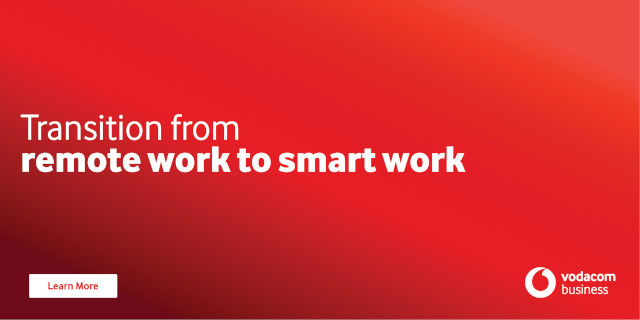Women in datacentres must be prioritised
By Industry Contributor 14 March 2024 | Categories: news (1).jpg)
News sponsored by Vodacom Transformation of Work:
By Faith Waithaka, Cloud and Service Provider Segment Sales Lead: Anglophone Africa at Schneider Electric
As the African datacentre sector emerges as an important global player gender diversity must undoubtedly also keep pace with this growth. Unfortunately, current estimates are not promising; a recent report by the Uptime Institute states that three-quarters of datacentre operators employ 10% or less women.
Similarly, a study by the International Energy Agency (IEA) reveals that women make up a mere 16% of the traditional energy sector's workforce, again highlighting a substantial gender gap. Moreover, women in the sector face a pay disparity of 20% compared to their male counterparts.
The reality is achieving sustainability goals and staying ahead of digitalisation curve, require a diverse and innovative workforce. Diversity, equity, and inclusion are not just ethical imperatives; it represents a strategic business imperative that drives creativity and foster innovation.
At this important juncture, industry leaders from across the continent must come together to pave the way for increased female representation in the datacentre sector.
The recent establishment of the African Women Business Energy Network (AWBEN) by the African Energy Chamber is an important step in the right direction. The chamber aims to foster a supportive community for women in the energy and datacentre industry. This initiative recognises that as the energy sector expands, so does the imperative for more women to participate.
AWBEN’s key initiatives include inciting collaboration among African women in the energy industry, hosting mentorship programmes and empowering women to take ownership of their personal and professional development, offering coaching and sponsorship opportunities for girls in STEM, creating avenues to encourage more African women-participation and leadership roles in the energy industry.
Addressing cultural, social and skills challenges
One of the challenges hindering female participation in the datacentre industry is the influence of cultural and social norms. Here, the industry must come together to not only attract women to the sector but to also break barriers that may discourage them from pursuing roles.
By dismantling these historic challenges, we can create an environment where women feel empowered to contribute meaningfully to the data centre industry. One of the areas where there is a need for change, is women in leadership. Young women thinking about their career options may be deterred from entering an industry where there are few women leaders. This needs to change.
Furthermore, to secure the future of sustainable datacentres in Africa, the industry must invest in both inspiring and retaining the next generation of skilled professionals. This begins with encouraging young talent, especially girls, to pursue STEM subjects from an early age.
Supporting initiatives such as Girls in Data and Woman in Data and establishing mentorship programmes are crucial steps in a more equally represented datacentre industry.
At Schneider Electric, we continue to prioritise programmes that uplift women such as ‘How Women Rise’ and ‘Still, I Rise’. This year we also launched a women’s forum across Anglophone Africa, aptly named the Schneider Electric Ladies Forum (SELF) that aims to promote the fostering of ‘self’ in terms of wellbeing, development, and empowerment.
Globally, we have also been recognised by Bloomberg Gender-Equality Index (GEI) for our efforts to increase gender equity through an inclusive and caring environment.
Most Read Articles

Have Your Say
What new tech or developments are you most anticipating this year?




